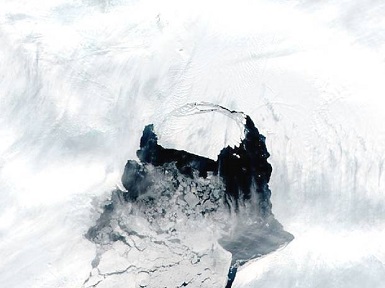Pine Island Glacier melting past 'the point of no return'
 Antarctica’s Pine Island Glacier could now be in a state of irreversible retreat, making it likely to become an even more significant contributor to the global sea level rise during the next two decades, scientists have warned.
Antarctica’s Pine Island Glacier could now be in a state of irreversible retreat, making it likely to become an even more significant contributor to the global sea level rise during the next two decades, scientists have warned.The research, published in Nature Climate Change, found that in recent years, the grounding line, which separates the grounded ice sheet from the floating ice shelf, has retreated by tens of kilometres.
An international team of scientists from the CSC-IT Center for Science in Finland, the Chinese Academy of Sciences and the Universities of Exeter and Bristol combined field observations and computer models to predict how the ice will change over the next few years.
Their research concluded the recent Pine Island Glacier thinning has probably “reached a point of no return”, according to the British Antarctic Survey (BAS).
This glacier is currently responsible for contributing 25 per cent of the total ice loss from West Antarctica, which the BAS say is likely to increase over the next 20 years.
Dr Hilmar Gudmundsson from the BAS said: “At the Pine Island Glacier we have seen that not only is more ice flowing from the glacier into the ocean, but it’s also flowing faster across the grounding line - the boundary between the grounded ice and the floating ice. We also can see this boundary is migrating further inland.
“The Pine Island Glacier shows the biggest changes in this area at the moment, but if it is unstable it may have implications for the entire West Antarctic Ice Sheet.
“Currently we see around two millimetres of sea level rise a year, and the Pine Island Glacier retreat could contribute an additional 3.5 - 5 millimeters in the next twenty years, so it would lead to a considerable increase from this area alone. But the potential is much larger.”
The point at which the glacier ice breaks away from land has retreated inland by tens of kilometres. Dr Gaël Durand, lead author on the Nature Climate Change paper ‘Retreat of Pine Island Glacier controlled by ice-sheet instability, warned all current models suggest the Pine Island Glacier has become unstable, and this recession will continue and is even irreversible.
He said: “All the models suggest that this recession will not stop, cannot be reversed and that more ice will be transferred into the ocean.”
You can return to the main Market News page, or press the Back button on your browser.

